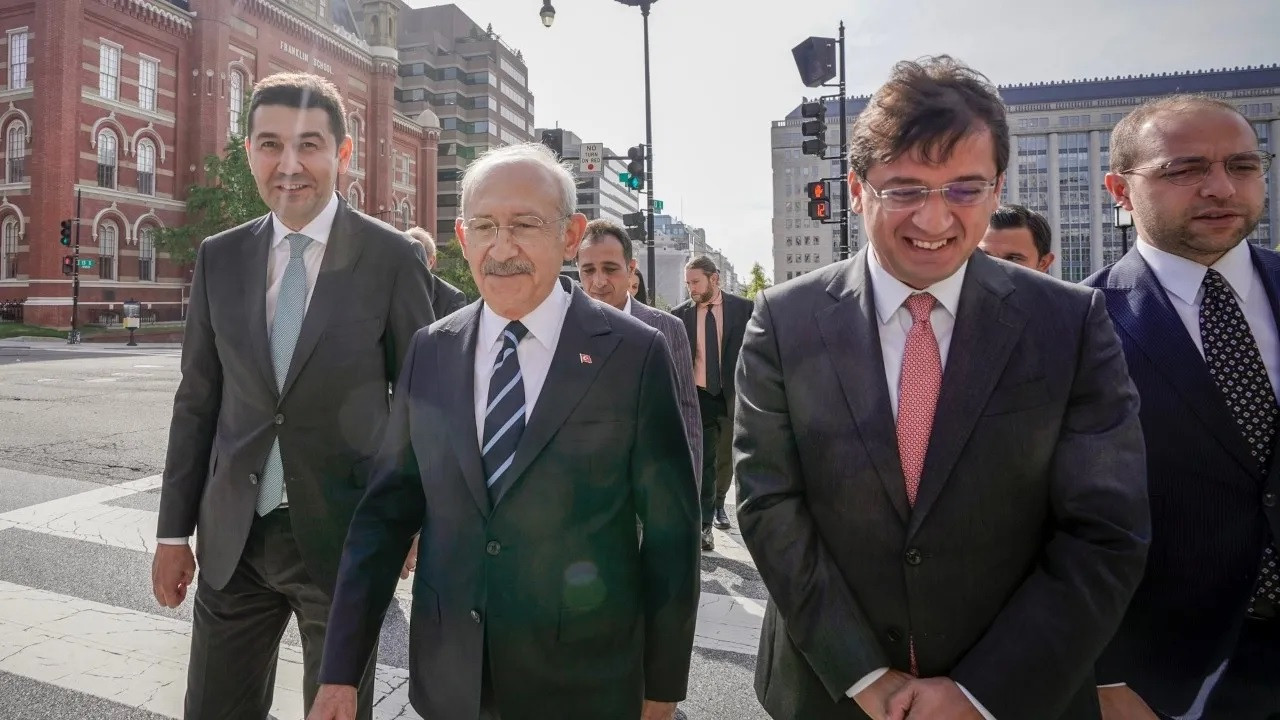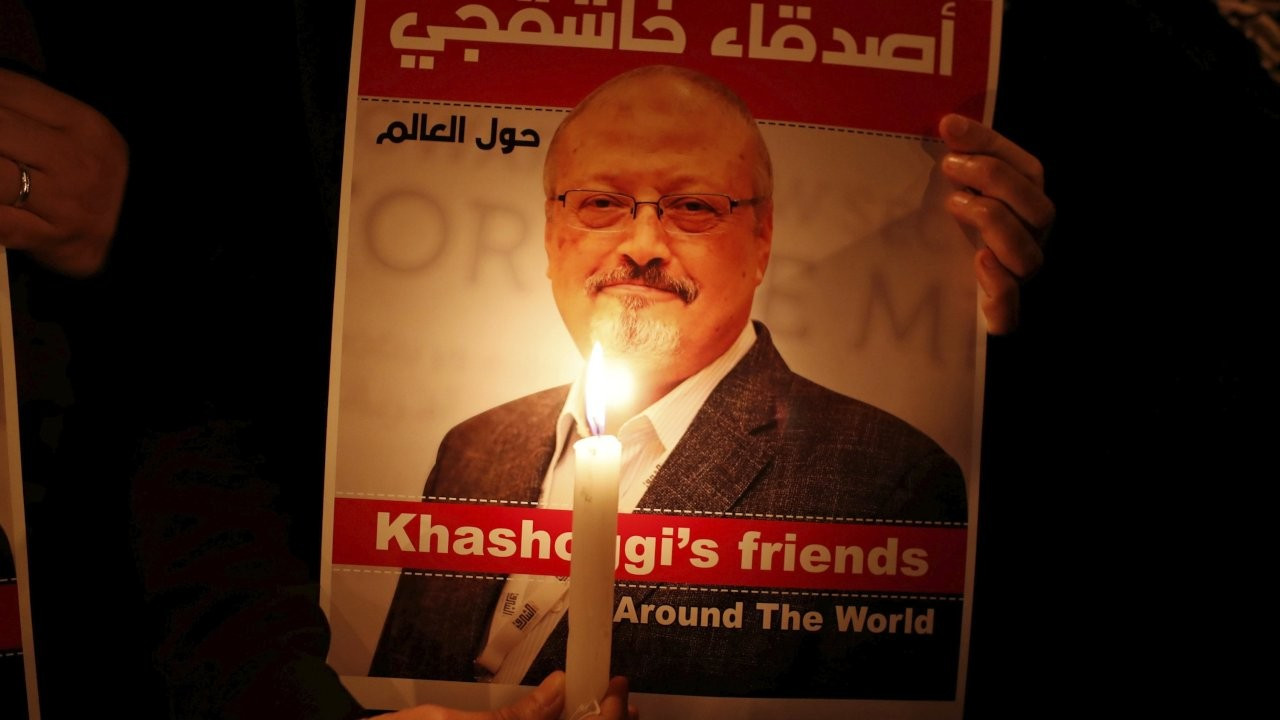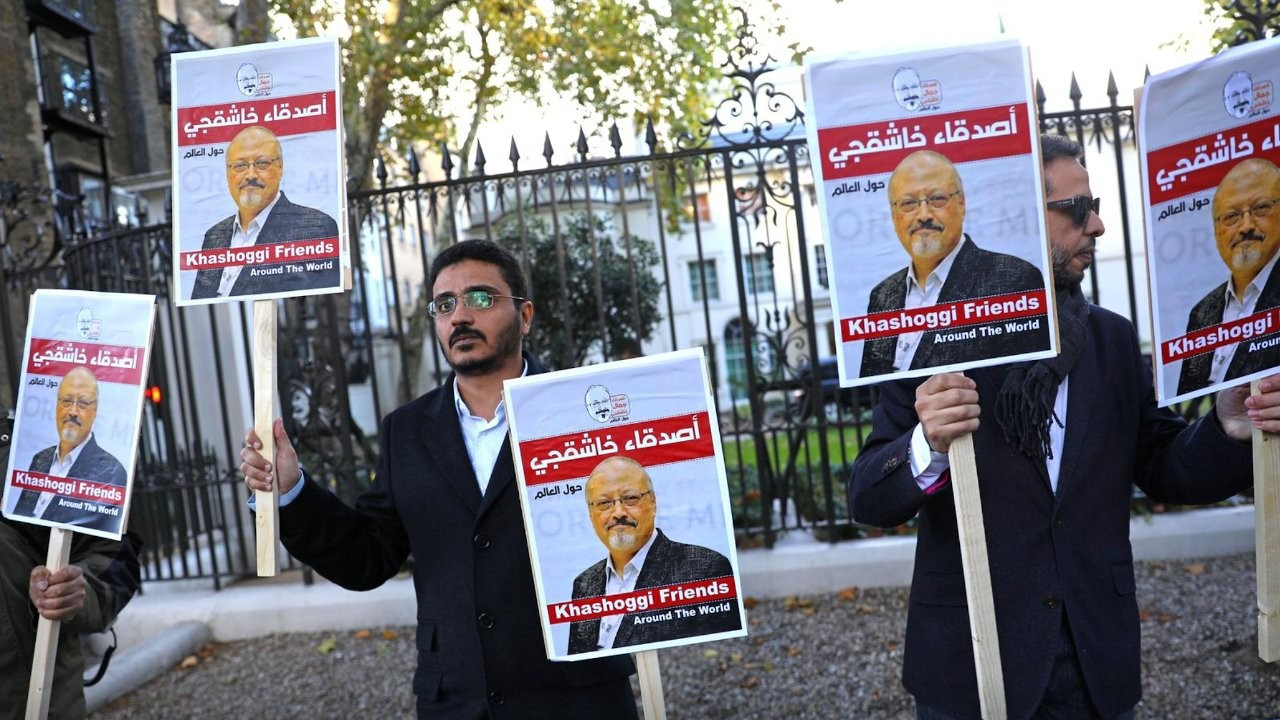Top Turkish court rejects application of Khashoggi's fiancee over case transfer to Saudi Arabia
Turkish Constitutional Court has rejected the application of slain Saudi journalist Jamal Khashoggi's fiancee Hatice Cengiz over the transfer of his murder case to Saudi Arabia.
Duvar English
Turkey's Constitutional Court (AYM) has rejected the application of the fiancee of slain Jamal Khashoggi, Hatice Cengiz, concerning the transfer of the trial of Saudi suspects to Saudi Arabia over the killing of the journalist.
Khashoggi was reported missing after he entered the Saudi Consulate in Istanbul on Oct. 2, 2018.
Turkish authorities and investigators had said Khashoggi was interrogated inside the consulate before his body was dismembered. It is believed that his body was likely burned in a large oven at the Saudi consul general's residence.
First denying the allegations of murdering Khashoggi, the Saudi government later admitted to the killing. It said the murder was carried out by agents in a "rogue operation."
A Turkish court ruled to halt the trial of Saudi suspects over the killing of journalist Jamal Khashoggi and transfer it to Saudi Arabia, a decision that comes as Ankara sought to mend ties with Riyadh.
Then, Khashoggi's fiancee, Hatice Cengiz, brought the decision regarding the transfer of the case to the Constitutional Court (AYM). In the application, Cengiz stated that the rights “of fair trial, of legal remedies, of access to court, to life,” and “principle of equality and prohibition of discrimination” were violated, demanding the removal of the transfer decision and the retrial.
The petition stated “The client's fiancee was killed on the territory of our country, and the murderers were handed over to the instigator."
The Constitutional Court put Cengiz's application on its agenda on May 10. Evaluating the file, the court rejected the application, Asuman Aranca from online news outlet T24 reported on May 13.
The court evaluated Cengiz's application in terms of the “procedural dimension of the violation of the right to life.” The court rejected the application on the grounds that the transfer of the Khashoggi case to another country was based on the provision of law, which fell within the scope of legal predictability.

 Turkish main opposition leader pays condolence visit to Washington Post over Khashoggi killingPolitics
Turkish main opposition leader pays condolence visit to Washington Post over Khashoggi killingPolitics Turkish court halts Khashoggi trial, transferring it to Saudi ArabiaHuman Rights
Turkish court halts Khashoggi trial, transferring it to Saudi ArabiaHuman Rights Slain journalist Khashoggi's sons forgive his killers, fiancee slams moveWorld
Slain journalist Khashoggi's sons forgive his killers, fiancee slams moveWorld Erdoğan and Saudi crown prince meet in Turkey, ending riftDiplomacy
Erdoğan and Saudi crown prince meet in Turkey, ending riftDiplomacy Turkish Justice Ministry finds transfer of Khashoggi case to Saudi Arabia 'appropriate'Diplomacy
Turkish Justice Ministry finds transfer of Khashoggi case to Saudi Arabia 'appropriate'Diplomacy